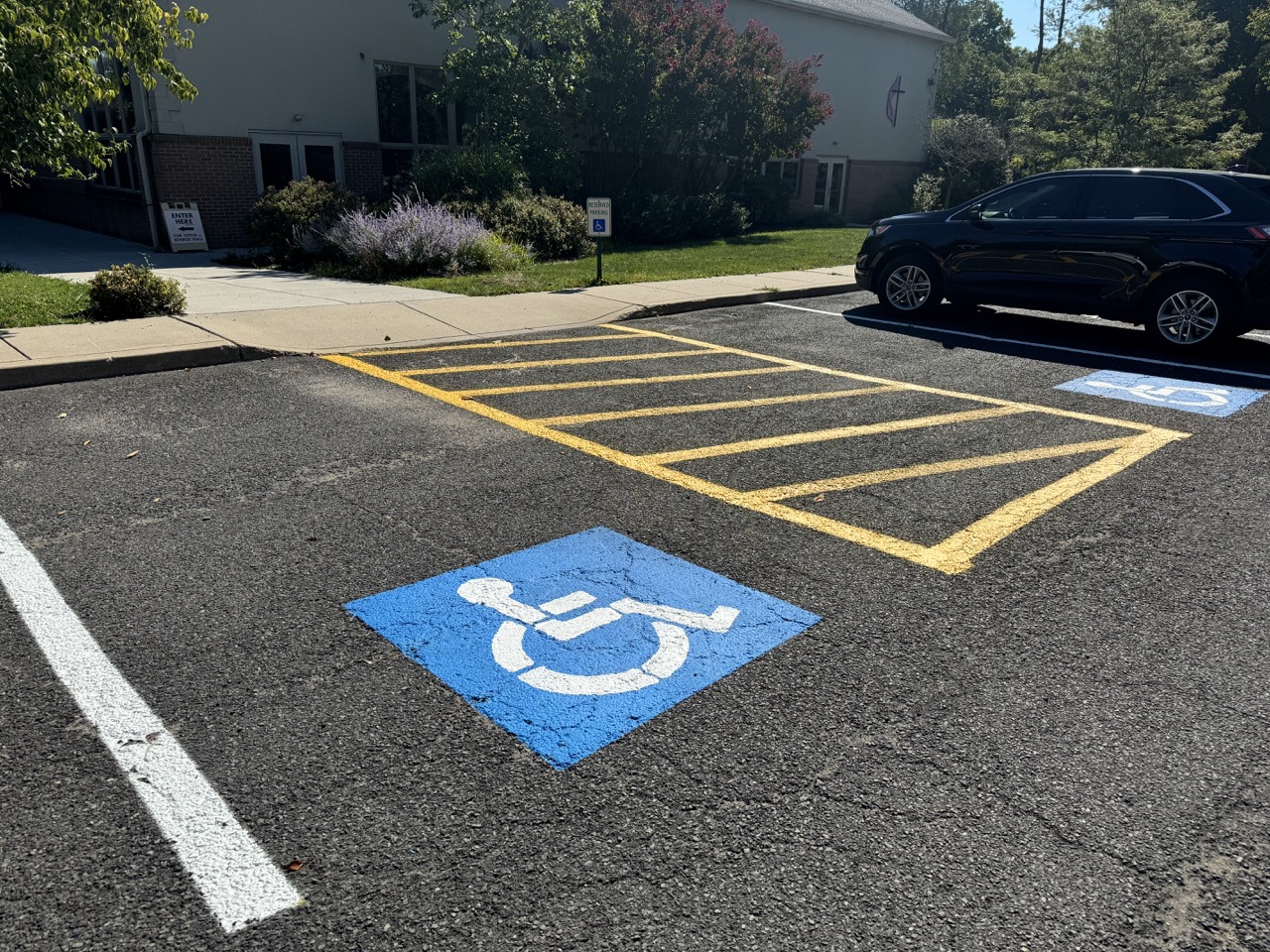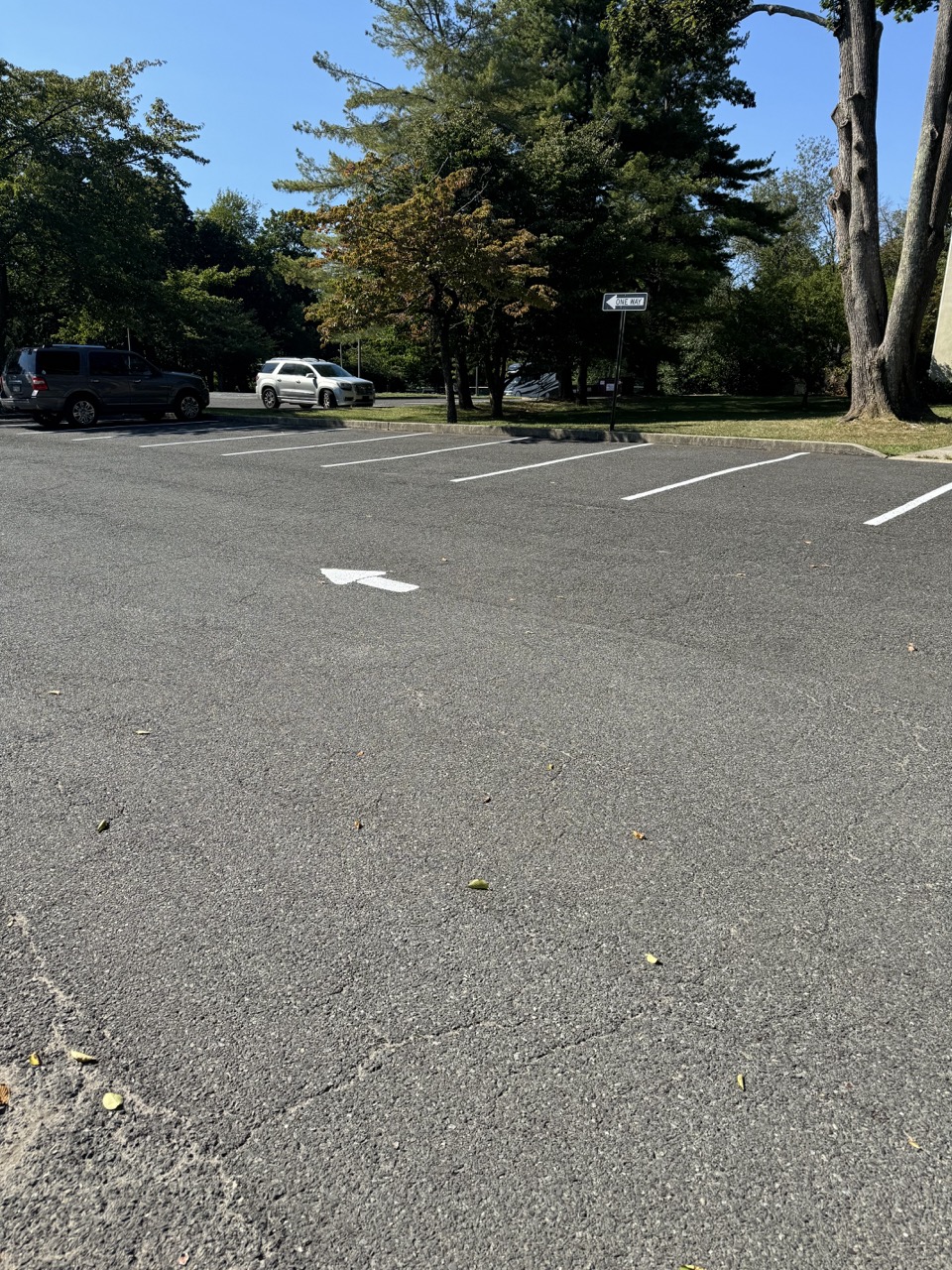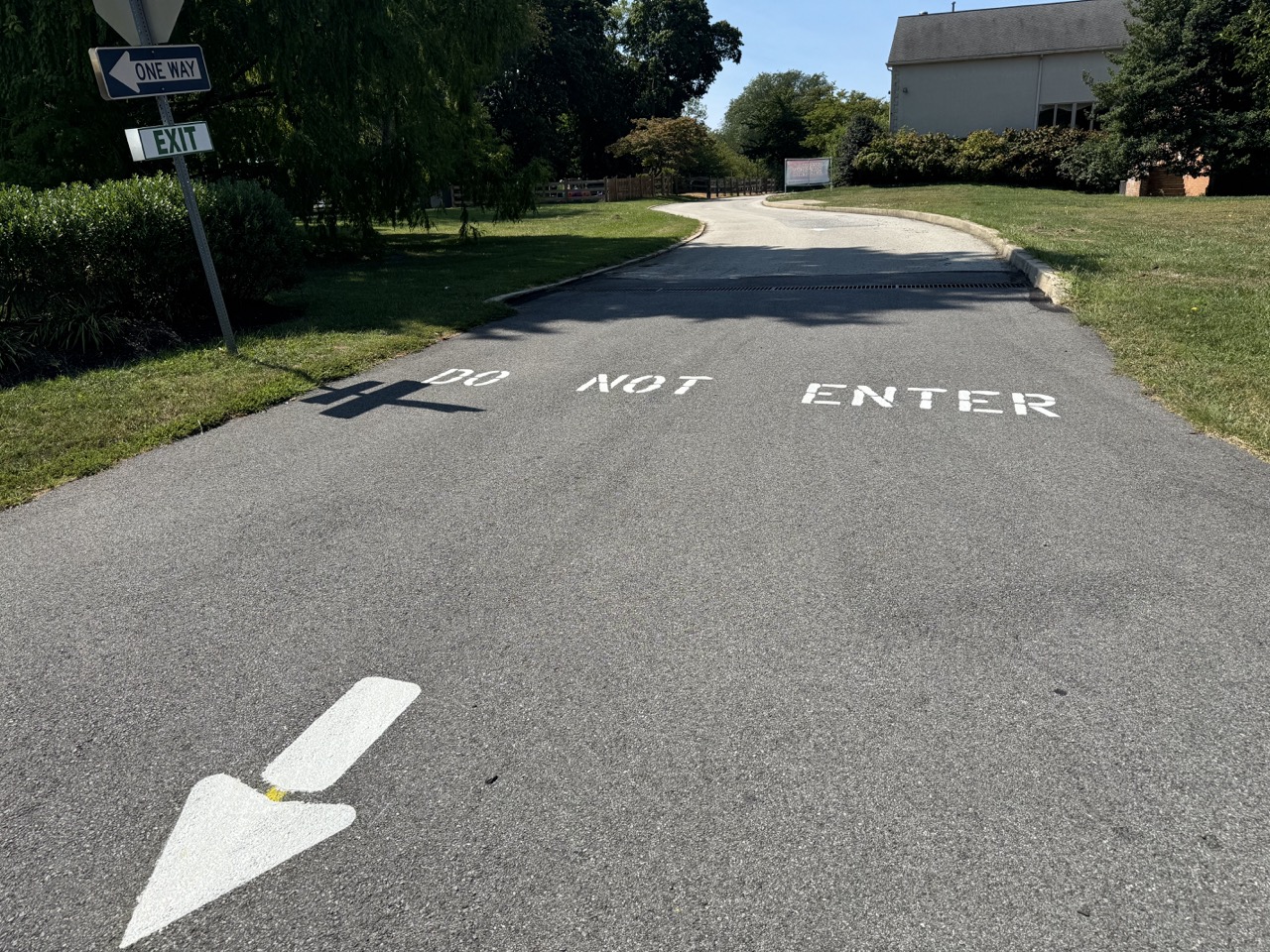We are excited to share that our church has taken a significant step to improve hospitality, welcome, and safety by cleaning and repainting the lines in our parking lot. The difference is remarkable, and it’s something we can all be proud of when welcoming people to our church.
One of the key updates includes clearly marked handicapped parking spots, making it easier for those with mobility challenges to access our building. We’ve also refreshed the directional arrows to ensure a smooth one-way flow through the lot, and clearly marked the "Do Not Enter" signs at the exit to enhance safety for everyone.
Take a look at the pictures below to see the improvements:
Handicapped Spots with Improved Visibility

One-way Direction Arrows for Safety

"Do Not Enter" at the Exit for Improved Safety

This project was funded by the church’s reserve funds, but if you’d like to contribute to help defray the cost, your one-time donation would be greatly appreciated. You can make a donation at [link].
Thank you for helping us make our church a more welcoming and safer place for all!